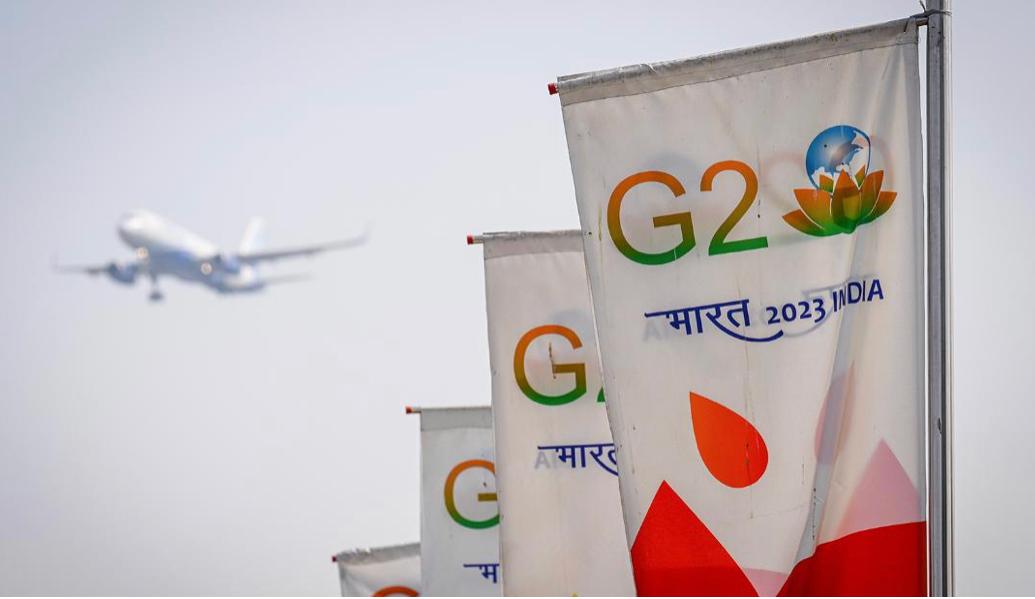Top diplomats from the Group of 20 industrialized and developing nations ended their contentious meeting in New Delhi with no consensus on the Ukraine war, India’s foreign minister said, as discussions of the war and China’s widening global influence dominated much of the talks.
China and Russia objected to two paragraphs taken from the previous G-20 declaration in Bali last year, according to a summary of the meeting released by India. The paragraphs stated that the war in Ukraine was causing immense human suffering while exacerbating fragilities in the global economy, the need to uphold international law, and that the use or threat of use of nuclear weapons is inadmissible.
Host India had appealed for all members of the Group of 20 to reach consensus on issues of particular concern to poorer countries even if the broader East-West split over Ukraine could not be resolved. And while others, including U.S. Secretary of State Antony Blinken, chose to highlight their roles in addressing world crises, the divide was palpable.
Talks began with a video address to the foreign ministers by Indian Prime Minister Narendra Modi. He urged them not to allow current tensions to destroy agreements that might be reached on food and energy security, climate change and debt.
Modi told the group that they are meeting at a time of deep global divisions, which included Blinken, Chinese Foreign Minister Qin Gang and their Russian counterpart Sergey Lavrov, saying their discussions would naturally be affected by on going global scenarios.
In a nod to fears that the increasingly bitter rift between the United States and its allies on one side and Russia and China on the other appears likely to widen further, Modi said that multilateralism is in crisis today.
He lamented that the two main goals of the post-World War II international order — preventing conflict and fostering cooperation were elusive. “The experience of the last two years — financial crisis, pandemic, terrorism and wars — clearly shows that global governance has failed in both its mandates,” he said.
Blinken spent much of his time describing U.S. efforts to bolster energy and food security. But he also told the ministers pointedly that Russia’s war with Ukraine could not go unchallenged.
He added, “Unfortunately, this meeting has again been marred by Russia’s unprovoked and unjustified war against Ukraine, deliberate campaign of destruction against civilian targets, and its attack on the core principles of the U.N. Charter,”.
“We must continue to call on Russia to end its war of aggression and withdraw from Ukraine for the sake of international peace and economic stability,” Blinken said. He noted that 141 countries had voted to condemn Russia at the United Nations on the one-year anniversary of the invasion. Several members of the G-20, including India, China and South Africa, chose to abstain in that vote.
A Chinese peace proposal for Ukraine that has drawn praise from Russia but dismissals from the West has done nothing to improve matters as U.S. officials have repeatedly accused China in recent days of considering the provision of weapons to Russia for use in the war.
Blinken said that the Chinese plan rang hollow given its focus on “sovereignty” compared to its own recent actions. Blinken said in Tashkent, Uzbekistan, before traveling to New Delhi, “China can’t have it both ways.”
China hit back at those comments, accusing the U.S. of promoting war by supplying Ukraine with weapons and violating Chinese sovereignty with support for Taiwan, which Beijing claims as its territory.
In the meantime, Moscow has been unrelenting in pushing its view that the West, led by the U.S., is trying to destroy Russia. Ahead of the meeting, the Russian Foreign Ministry slammed U.S. policies, saying that Lavrov and his delegation would use the G-20 to focus on the attempts by the West to take revenge for the inevitable disappearance of the levers of dominance from its hands.















